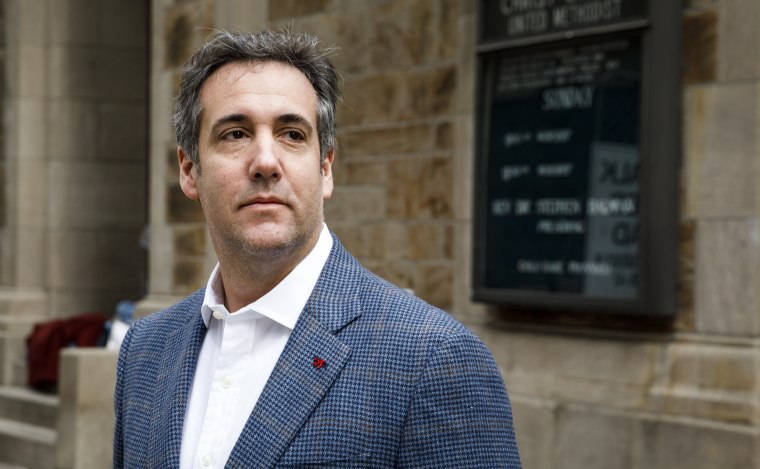Michael Cohen this week directly implicated Donald Trump in a federal crime. Naturally, this means it's time for the White House to take steps to tear down Cohen's credibility.
"Just because Michael Cohen made a plea deal doesn't mean that that implicates the president on anything," White House Press Secretary Sarah Huckabee Sanders told reporters yesterday.
The idea, apparently, is that Cohen may have implicated Trump, but Cohen may have simply made up bogus claims as part of a plea agreement with prosecutors. The president made this case on Twitter yesterday, accusing his former attorney of deciding to "make up stories in order to get a 'deal.'"
Trump echoed the point in his newest Fox News interview. Asked why Cohen implicated him, he said:
"Because he makes a better deal when he uses me, like everybody else. [...]"You know, they make up stories. People make up stories."
The official argument is clearly taking shape: Trump World believes there's value in creating a "he said, he said" fight pitting the president against Michael Cohen. It's one man's word against another's.
Except, that's not at all true.
NBC News' Tom Winter explained yesterday that the prosecutors in this case made clear on Tuesday that, with the evidence they compiled, they effectively had Trump dead to rights. Winter pointed to this portion of the court transcript, in which prosecutor Andrea Griswold detailed the available information that would've been used to convict Cohen on counts related to the president:
"With respect to Counts Seven and Eight, as the defendant allocuted, and as detailed in the information filed today, the government would prove that the defendant caused an illegal corporate contribution of $150,000 to be made in coordination with a candidate or campaign for federal office, and also that Mr. Cohen made an excessive contribution of $130,000 in coordination with the campaign or candidate for purposes of influencing the election."The proof on these counts at trial would establish that these payments were made in order to ensure that each recipient of the payments did not publicize their stories of alleged affairs with the candidate. This evidence would include:"Records obtained from an April 9, 2018 series of search warrants on Mr. Cohen's premises, including hard copy documents, seized electronic devices, and audio recordings made by Mr. Cohen."We would also offer text messages, messages sent over encrypted applications, phone records, and emails."We would also submit various records produced to us via subpoena, including records from the corporation referenced in the information as Corporation One and records from the media company also referenced in the information."Finally, we would offer testimony of witnesses, including witnesses involved in the transactions in question who communicated with the defendant."
The point, of course, is that we're not just talking about Cohen's claims vs Trump's claims. Sarah Huckabee Sanders suggested yesterday that the only evidence implicating the president are suspect claims from his former lawyer, but that's a woefully incomplete picture.
Cohen's claims aren't "made-up stories," as Trump suggested yesterday. His version of events is supported by evidence that federal prosecutors were prepared to present at trial.
What kind of backup does Trump have to support his claims?
